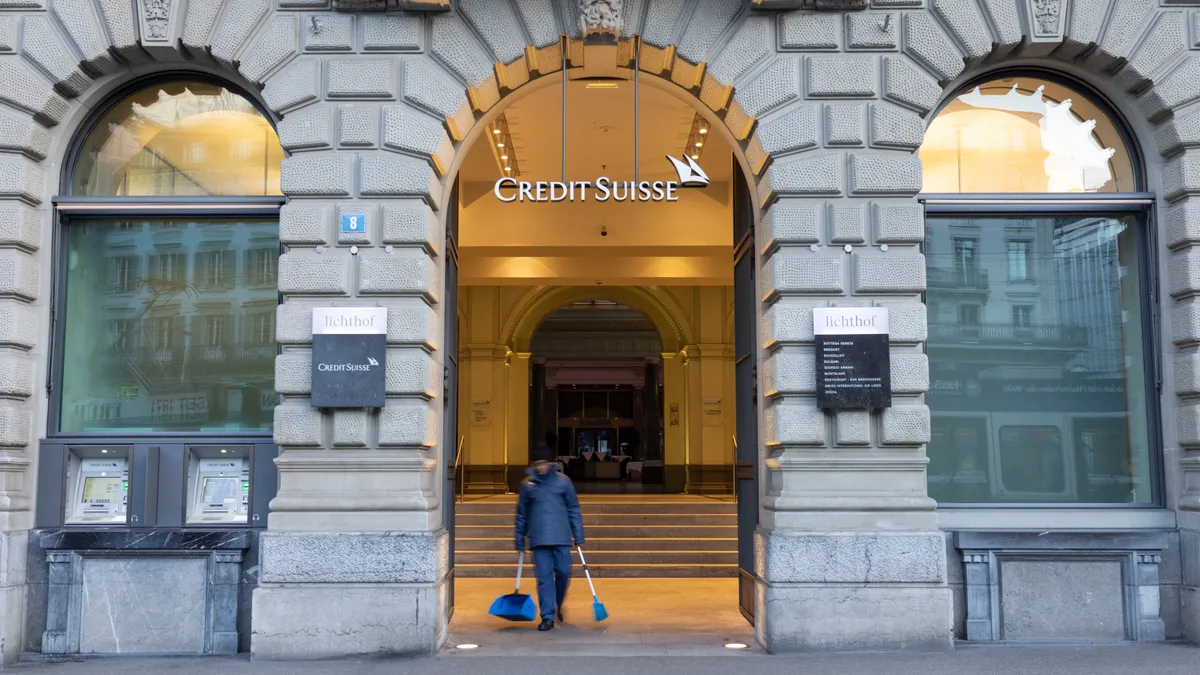Credit Suisse tried to bolster its liquidity and reinstate investor confidence by borrowing around $54 billion from the Swiss National Bank on Thursday, following a plunge in its share prices that signaled a possible global banking crisis.
The infusion pushed Credit Suisse shares up 20%, according to Reuters, after a 25% drop Wednesday.
The embattled bank called the loan a “decisive action to pre-emptively strengthen its liquidity.”
“This additional liquidity would support Credit Suisse’s core businesses and clients, as Credit Suisse takes the necessary steps to create a simpler and more focused bank built around client needs,” the bank said in a statement.
Credit Suisse also said it repurchased billions of dollars of its own debt, including $2.5 billion of U.S. dollar bonds and around $529 million of Euro bonds to manage its liabilities and interest costs.
Earlier Wednesday, Finma, the Swiss financial market regulator, said in a joint statement with SNB that Credit Suisse met the “strict capital and liquidity requirements” imposed on systemically important banks.
“If necessary, the SNB will provide CS with liquidity,” they said, according to CNN.
Credit Suisse CEO Ulrich Körner thanked the organizations in a statement. “My team and I are resolved to move forward rapidly to deliver a simpler and more focused bank built around client needs,” he said.
Körner is overseeing a radical restructuring at the bank aimed at bringing it back to profitability. That includes spinning off its capital markets and advisory units under a revived CS First Boston banner and slashing 9,000 jobs by 2025.
The bank on Tuesday released its annual report after much delay to address some last-minute questions from the Securities and Exchange Commission. Credit Suisse identified “material weaknesses” in its internal controls over financial reporting in the past two years.
The bank’s chair, Axel Lehmann, also chose to forgo $1.6 million in pay.
The market, already on edge following the collapse of Silicon Valley Bank in the U.S., sent investors to dump their Credit Suisse shares in the biggest one-day selloff on record, according to Bloomberg.
“Markets are very sensitive to the negative news flow after the surprise of seeing a US bank disappear from one day to the other,” Francois Lavier, head of financial debt strategies at Lazard, told the wire service. “In a context where market sentiment is already weakened, not much is needed to weaken it even further.”
More than $60 billion in combined market value was wiped out among European banks Wednesday, Bloomberg reported.
The European Central Bank raised interest rates by 50 basis points Thursday, as was already decided, but said it is “monitoring current market tensions closely and stands ready to respond as necessary to preserve price stability and financial stability in the euro area,” according to Reuters.
Saudi National Bank, Credit Suisse’s biggest shareholder, declined to boost its stake in the embattled bank.
“The answer is absolutely not, for many reasons,” Chairman Ammar Al Khudairy told Bloomberg on Wednesday.
“If we go above 10%, all new rules kick in whether it be by our regulator or the Swiss regulator or the European regulator,” he said. “We’re not inclined to get into a new regulatory regime. I can cite five or six other reasons, but one reason is there is a glass ceiling and we’re not going to entertain going beyond it.”













